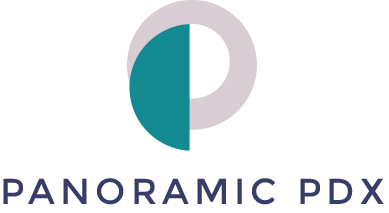
Therapy for
Career Stress
Check out my featured podcast episode on Find Your Dream Job —How to Get Unstuck When Making a Career Change.
Sometimes the workplace can take a serious toll on you mentally and emotionally. Work can give you a sense of purpose and fulfillment, but what happens if you experience stressful, traumatic, or career-disrupting challenges in the workplace? All too common, work-induced stress can lead to difficulties that impact your job satisfaction and your overall sense of well-being.
Turbulent times at work can lead to mental health issues like anxiety, depression, burnout, and PTSD. A prolonged stress response at work can negatively impact emotional, physical, and behavioral health. You may experience symptoms that make working or managing personal activities difficult.
You don’t have to navigate workplace challenges on your own!
I specialize in career therapy providing counseling around adverse job incidents that result in work-related stress or trauma. I am uniquely qualified to blend culturally-sensitive career counseling with trauma-focused therapy using counseling modalities like ACT, CBT, EMDR, and mindfulness-based stress reduction. These are evidence-based practices that have been found to reduce symptoms of anxiety, depression, stress, and PTSD.
Examples of adverse job experiences:
Bad leadership
Harassment and discrimination
Racism and microaggressions
Systemic oppression
Misaligned values with your employer
Existential career crisis
Violations of work-life balance
Critical incidents or workplace violence
Symptoms Related to Work Stress
While everyone responds to stressors differently, a prolonged stress response at work can negatively impact your emotional, physical, and behavioral health. You may be experiencing one or more of the following symptoms:
Mental and emotional changes:
Chronic stress can lead to or exacerbate anxiety, depression, burnout, PTSD, and panic disorder. Emotional responses to stress include anger, irritability, sadness, hopelessness, low self-esteem, powerlessness, worry, fear, anxiety, embarrassment, and loneliness.
Cognitive changes:
Because chronic stress impacts physical and mental health, cognitive symptoms may be present. For example, insomnia, depression, and chronic pain could all contribute to cognitive changes such as difficulty focusing, difficulty concentrating, forgetfulness, communication challenges, disorganization, and poor judgment and decision-making.
Physiological changes:
Physiological conditions related to stress include fatigue, headaches, gastrointestinal (GI) upset, musculoskeletal conditions, chronic pain, insomnia, and a lowered immune system. Long-term stress can lead to health problems such as cardiovascular diseases, obesity, and diabetes.
Behavioral Changes:
Examples of behavioral changes include changes in eating habits; changes in sleep patterns; social withdrawal; lack of interest in activities; impulsive behavior; escapism behavior, decreased productivity at school or work, procrastination or work avoidance, absenteeism, and excessive smoking, drug, or alcohol abuse.
When you work with a trauma-informed career counselor, you can begin to heal from difficult work experiences and find renewed purpose in your career.
What is the career counseling process like?
The career counseling process will look different for everyone, but generally, there are five phases of career counseling: intake, preparation, job search strategies, landing the job, and maintenance. Click the link to learn more.
What are the main benefits of working with a career counselor versus a career coach?
If you need clarification about the key differences between career counselors, career coaches, and career consultants, click the link above to learn more and make an informed decision!
Why do people enlist the help of a career counselor?
Whether you are a recent graduate, a mid-career professional, or someone seeking a fresh start, hiring a career counselor can be a proactive step toward finding clarity and achieving your professional goals. Even a few strategy and planning sessions with a career counselor can help you break through internal and external barriers that are holding you back from a satisfying career.
Do you help with career transitions if I want to leave my employer or my industry?
Absolutely, I specialize in working with people who are making career transitions. Click the link above to learn more.
Can you help me work with my employer to request an ADA job accommodation or a Family Medical Leave of Absence (FML)?
It can be scary to navigate work policies on your own. If appropriate, I may be able to help you make an accommodation request to your employer or assist with a leave. I have a specific protocol that I follow for work stress that necessitates an accommodation, intermittent leave, or a leave of absence.



